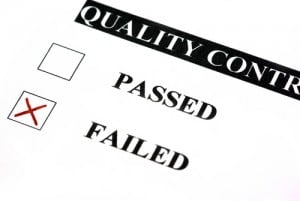Sun Pharmaceuticals Issues Drug Recall for Failed Manufacturing Quality Standards

The company’s drug recall covers 400,000 bottles of various medications, including 128,363 bottles of decongestant Cetirizine, as well as 251,882 bottles of antidepressant Venlafaxine. The company found that the pills failed to dissolve properly in the human body, which prevented medication from being ingested in a timely fashion, in the right dose, or even absorbed at all.
Both drug recalls were announced following complaints about the generic medications.
The drug recall falls under Class II, according to the FDA, because using the drugs or exposure to the drugs can lead to temporary or medically reversible adverse health consequences, or that the probability of long-term health consequences is remote.
FDA Visit to India Does Not Help Regulate Generic Drug Recall Problems
Amid rising concerns about the quality of generic drugs manufactured in India, FDA head Margaret A. Hamburg went to India in February to investigate generic drug manufacturers. Unfortunately, it appears her visit has done little to prevent drug recalls related to quality control mistakes from overseas manufacturers.
Several generic drug manufactures in India have come under fire in recent years because of violations of FDA regulations. Manufacturers Ranbaxy Laboratories and Wockhardt Ltd were both banned from selling prescription generic drugs in the US after federal inspectors found the companies had retested drugs’ efficacy to gain favorable results.
Her visit was also another step toward regulating generic drugs. For years, the FDA did not have authority to regulate generic drug manufactures due to a legal tie-in with brand name counterparts. However, in 2012, the FDA was granted the power to collect fees for problems with generic drugs from their manufacturers – and in November of last year, the FDA proposed a rule to allow generic drug manufacturers to change their labels to reflect side effects that brand name drugs did not have to list.
In June 2013, the Supreme Court upheld a 2011 decision that generic drug manufacturers were not liable for personal injury caused by their products, because generic drug companies must legally have the same safety labels as their brand-name counterparts. If a patient ends up with a personal injury due to safety problems with a drug they have been prescribed, they can sue the brand name manufacturer, but they cannot sue the generic drug company for misinformation about safety. Brand name companies, also, are able to independently update their safety and warning information, while generic drug companies have had to wait until new information about the original drug was released.
“Now, with the generic industry having grown up, most people are taking generic drugs,” said Dr. Janet Woodcock, the F.D.A.’s head of drug evaluation and research, in a telephone interview. “It’s really time to level the playing field.”
The Strom Law Firm Helps with Personal Injury Cases Related to Brand or Generic Drug Recalls
If you have been harmed, or a loved one has been harmed or killed by a defective product or drug, whether brand name or generic, the attorneys at the Strom Law Firm can help. You may be entitled to compensation through a personal injury lawsuit. We offer free, confidential consultations to discuss the facts of your case, so contact us today. 803.252.4800.

